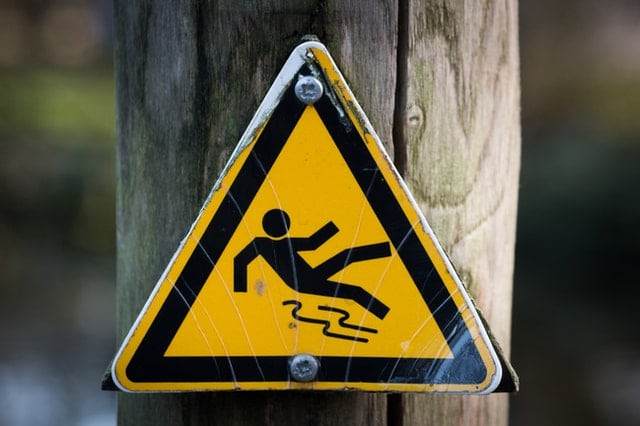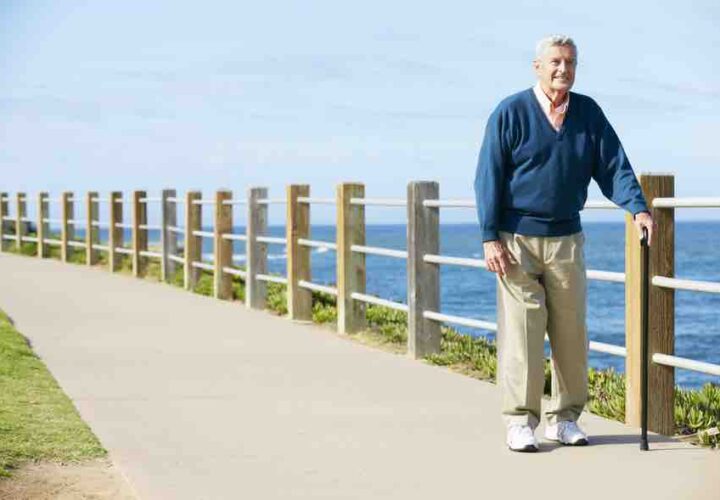“People with pre-clinical Alzheimer’s are at increased risk of falling despite having no apparent cognitive problems.”
Falls are the leading cause of fatal injuries in older adults, resulting in an estimated 30,000 deaths in the U.S. every year. Sudden falls can be caused by balance issues or prescription medications. Another major risk factor is Alzheimer’s disease. In a new study, researchers have learned that the presence of early Alzheimer’s in the brains of older adults may lead to a fall even before symptoms of the disease appear.
In a study published this summer in Journal of Alzheimer’s Disease, researchers at Washington University School of Medicine found that older adults in the earliest stages of Alzheimer’s, before cognitive problems arise, are more likely to suffer a fall than people who are not on track to develop dementia.
“When a person’s mobility is being diminished, even though the person looks very normal, that could be a sign that something needs further evaluation,” Dr. Beau M. Ances, a senior author on the paper and a Washington University professor of neurology, said in a news release. “It’s actually a really important potential marker that should make us say, ‘Wait a minute. Let’s dive into this more. Are there other things that go along with it?'”
Ances said the findings of his team’s research suggest that older people who have experienced falls should be screened for Alzheimer’s, and that new strategies may be needed to reduce the risk of falling for people with early-stage Alzheimer’s.
Falls and Alzheimer’s
Past research has shown that older people with Alzheimer’s are more than twice as likely to experience an injurious fall than people of the same age without dementia, and that the brains of people with Alzheimer’s may be undergoing changes for as long as 30 years before symptoms like memory loss and confusion manifest.
To better understand why people without cognitive symptoms are at risk of falling, Ances and colleagues spent one year following 83 cognitively normal people over age 65. Each participant self-reported any falls. Participants also underwent brain scans to screen for build-up of beta-amyloid proteins, a hallmark of Alzheimer’s, and other signs of neurodegeneration.
Ultimately, the study found that the presence of beta-amyloid proteins alone did not put people at increased risk of falling, but that neurodegeneration did.
As Alzheimer’s develops, key biomarkers beta-amyloid plaques aggregate, followed by tangles of tau protein. Some areas of the brain begin to shrink and signals between different parts of the brain degrade. The recent study showed that the link between Alzheimer’s and falling remains even in the early phase of the disease before their symptoms appear: People with pre-clinical Alzheimer’s are at increased risk of falling despite having no apparent cognitive problems.
The research documented that the participants in the study who fell had smaller hippocampi — the region of the brain that controls memory and that decreases in size in people with Alzheimer’s. And, these participants’ somatomotor networks — webs of neurological connections involved in receiving sensory inputs and controlling movement — also displayed signs of degradation.
The scientists concluded that falling is most likely to occur in the neurodegeneration phase of pre-clinical Alzheimer’s, the last five years or so before memory loss and confusion arise.
Preventing Falls for Older Adults
The researchers have begun further experiments to better understand why brain changes in Alzheimer’s put people at risk of falling, so they can develop fall-prevention recommendations. In the meantime, simple changes could go a long way toward protecting older people from devastating falls, co-senior author Susan Stark, an associate professor of occupational therapy, of neurology and of social work, said.
“In the world of fall research, we generally say that you’re at risk of falling if you lose strength and balance,” co-senior author Susan Stark, an associate professor of occupational therapy, neurology and social work at Washington University, said in a news statement. “But if someone is falling for another reason, maybe because his or her brain has begun accumulating Alzheimer’s-related damage, that person might need a different treatment entirely. We don’t yet know what that treatment might be, but we hope we can use this information to come up with new treatment recommendations that will reduce the risk of falls in this population.”
Meanwhile, other researchers are at work exploring new ways to help prevent fall-related injuries in vulnerable older adults, from hip protectors and protective headgear to padded floors.
“You can prevent a lot of falls just by making the environment safer,” Stark said. “Simple changes could help and can’t hurt: making sure the tub isn’t slippery; making sure you can get up easily off the toilet; balance and strength training; reviewing your prescriptions to see if certain medications or combinations of medications are increasing the risk of falling. Until we have specific fall-prevention treatments for people with preclinical Alzheimer’s, there are still plenty of things we can do to make people safer.”
Other fall prevention tips shared by experts with Being Patient include dual-task training, like walking while doing a memory recall test, or throwing a ball while recalling names or animals or doing math problems; VR programs that required participants to navigate obstacles; certain prescription medications; addressing possible vitamin D deficiency; exercise where possible; correcting vision and hearing problems; and removing obstacles from around the home.




